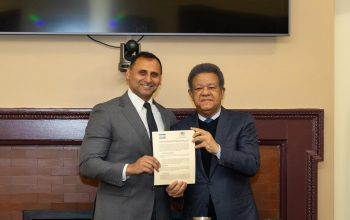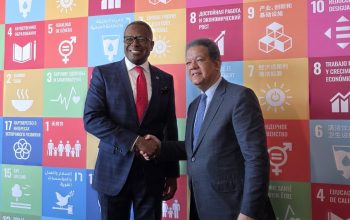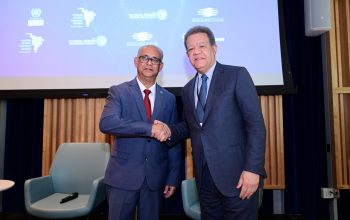news
GFDD Participates in UN General Assembly “Climate Change as a Global Challenge”
August 2, 2007
GFDD Environmental Projects Coordinator, Emy Rodríguez, attended the United Nations’ thematic debate, “Climate Change as a Global Challenge,” which took place at UN Headquarters in New York, July 31 – August 1, 2007.
Principal themes of the forum included: recent scientific assessment concerning climate change, strategies for adaptation and mitigation and
recommendations for a holistic multilateral approach to adequately confront global warming and associated climatic changes.
recommendations for a holistic multilateral approach to adequately confront global warming and associated climatic changes.
According to findings by the Intergovernmental Panel on Climate Change (IPCC), created by the World Meteorological Organization and the United Nations Environment Programme in 1988, greenhouse gas emissions have increased drastically since the start of the industrial revolution which began during the later part
of the 18th century. Over the course of the last century, the average global temperature has risen by 0.74˚C. The IPCC warns that if adequate adaptation and mitigation strategies are not implemented, the average global temperature will rise by 3˚C by the end of the century. The rise in temperature is directly associated with increases in greenhouse gas emissions due to human activity, particularly the burning of fossil fuel and deforestation.
Scientific study suggests that over 20% of all greenhouse gas emissions caused by human activity result from deforestation.
of the 18th century. Over the course of the last century, the average global temperature has risen by 0.74˚C. The IPCC warns that if adequate adaptation and mitigation strategies are not implemented, the average global temperature will rise by 3˚C by the end of the century. The rise in temperature is directly associated with increases in greenhouse gas emissions due to human activity, particularly the burning of fossil fuel and deforestation.
Scientific study suggests that over 20% of all greenhouse gas emissions caused by human activity result from deforestation.
Climatic changes associated with global warming include: sea-level rise, increased frequency and intensity of extreme weather phenomena (i.e. hurricanes, floods and drought) and increased glacial melt. The geographic areas expected to be most adversely impacted are: the Artic, Asian river deltas, island nations
and Sub-Saharan Africa.
and Sub-Saharan Africa.
During the debate, experts discussed the importance of implementing multi-prong strategies for adaptation at the individual, national and international level. Recommendations discussed included more conservative uses of water and energy sources, biodiversity conservation, protection of mangrove forests, development that is sustainable, public awareness initiatives and legislative measures.
Panelists stressed the need for mitigation in conjunction with the adoption of adaptation strategies. They argued that decreased dependency on fossil fuel and increased dependency on clean technologies, in addition to sustainable forest management, would translate in substantial gains with regard to reducing emissions. Experts advocated for governments to place greater emphasis on the development of alternative energy initiatives (natural gas,
hydro, biomass combustion and geothermal).
hydro, biomass combustion and geothermal).
GFDD and FUNGLODE organize a variety of activities designed to increase understanding of climate change and the steps that can be taken to mitigate its effects. GFDD and FUNGLODE participate in events such as the UN General Assembly’s debate: “Climate Change as a Global Challenge,” in order to stay abreast of the latest findings and current debates and develop
new contacts with experts in the field.
new contacts with experts in the field.






